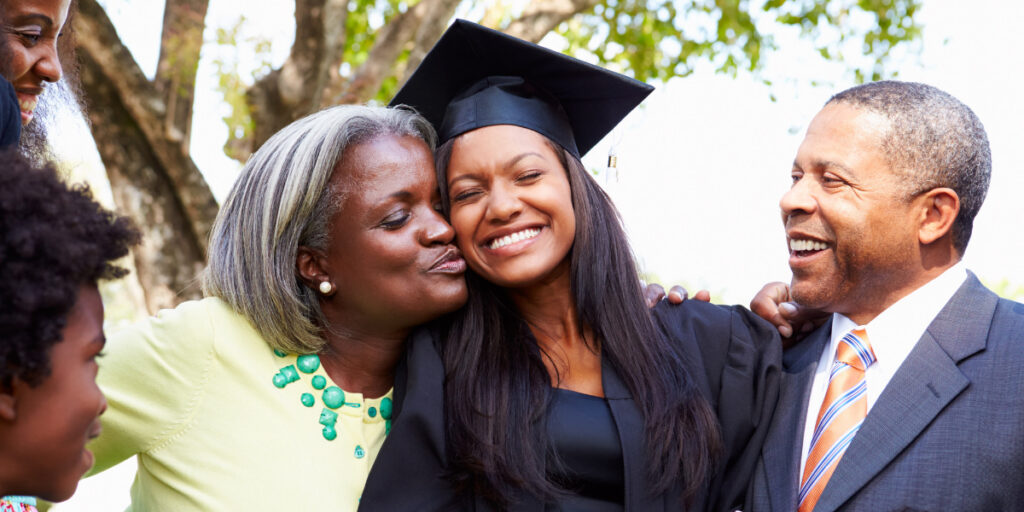
Ceremonies bring people together in deeply personal ways, and a graduation is one of those unforgettable moments. While excitement runs high, graduation etiquette serves as a gentle, reassuring guide that keeps events joyful for everyone involved. Honoring social norms supports the graduate’s achievement and the shared experience.
Every family and community develops its own unique way of celebrating milestones. Graduation etiquette creates structure, offering reassurance in what can be a whirlwind day. Whether you’re the proud parent, a grandparent in the crowd, or a childhood friend, small gestures make all the difference.
Let’s explore respectful customs, from the ideal way to cheer your graduate to giving meaningful gifts. This article covers practical graduation etiquette you can use to make any ceremony, party, or congratulatory moment shine.
Setting the Right Tone: Arriving Prepared and Making a Positive Impression
Showing up for a graduation means more than simply being present. Following a thoughtful arrival routine sets the tone for a smooth, celebratory day everyone can enjoy.
Long lines and crowded parking lots make it easy to feel overwhelmed. Planning ahead helps you avoid stress and allows your attention to stay on the graduate.
Confirming Event Details with the Graduate
Ask your graduate directly for the ceremony schedule, parking passes, or special seating rules. A simple, “Where should we meet after?” prevents mix-ups and keeps the event stress-free.
Take note of any limitations—some schools enforce strict ticketing. Respect the guest count and notify the graduate if your plans change, so their day goes smoothly.
Gracious families reach out to clarify dress code and all boundaries early, which prevents misunderstandings for everyone attending.
Dress Codes in Action: What Works and What to Avoid
Observe the stated or implied dress code. Many schools suggest business casual or semi-formal. Choose classic looks rather than attention-grabbing prints so as not to distract.
Practical shoes are smart for stadiums or fields, while dark colors tend to hide any minor stains or creases. Don’t risk loud accessories or hats that can block someone’s view.
Be as comfortable as possible, but aim for clothing that respects the tone of the event. If unsure, ask your graduate for advice. A question like, “Would this dress work at your ceremony?” makes things easier.
Timing Your Arrival: Early Is Best
Arriving at least 30 minutes before the ceremony eliminates last-minute panics. Early arrivals find better seats, ample parking, and time to greet others with calm, genuine excitement.
Traffic, security checks, or lineups at large venues can easily delay you. Stepping inside five minutes before the processional can cause commotion—arrive early, relax, and focus on your graduate instead.
Use the extra time to check your phone, locate restrooms, and settle in so you’re ready to pay full attention when the ceremony begins.
| Arrival Step | Explanation | Timing | Takeaway Tip |
|---|---|---|---|
| Confirm ceremony details | Check location, time, parking, tickets | Day before | Message graduate for updates |
| Choose respectful attire | Follow dress code, avoid stand-out outfits | Night before | Lay outfit out ahead of time |
| Arrive early | Beat traffic and crowds | At least 30 minutes before | Set GPS, check for delays |
| Find graduate’s seat location | Use programs or ushers to spot them | Upon arrival | Check program map right away |
| Turn off ringers | Silence phones, cameras beforehand | Before ceremony starts | Switch to vibrate or airplane mode |
Applauding Respectfully: Cheering Without Drowning Out Others
Understanding the right ways to celebrate in the moment allows graduates and families to enjoy their time without distractions or interruptions. Mindful applause creates space for everyone to feel appreciated.
Every school has different expectations, but basic graduation etiquette holds: cheer supportively, listen for the spoken requests during the ceremony, and respect shared traditions actively.
Clapping Versus Cheering: What to Do and Why
When a graduate’s name is called, applause is the standard way to show pride. Short, enthusiastic clapping lets families participate without causing lasting noise that carries over to others’ moments.
- Clap after every announcement to signal group support, not just for your graduate. This builds a sense of community and includes all students equally.
- Cheer with brief phrases like, “Way to go, Jamie!” but avoid drawn-out shouting, airhorns, or whistles. Quick cheers celebrate achievements while preserving the flow of the ceremony.
- Watch for hand signals or notices from staff. If a principal or speaker requests “one round of applause at the end,” honor this for everyone’s benefit.
- Hold phones steady during applause, not over your head blocking others. Others want their photo moments too—keep arms low or step aside after a quick shot.
- If bringing young children, practice clapping at home, so little ones know what’s appropriate. This simple prep helps avoid disruptions in a formal setting.
Not everyone enjoys loud environments. Listening for transitions and keeping celebrations considerate prevents missed memories or embarrassment for the graduate.
Gifting Traditions That Feel Personal
Gifting customs shape the graduation experience in meaningful ways. A heartfelt card or keepsake feels much more significant than cash slipped in a card out of habit.
- Write a personal note on the inside of your card, mentioning a specific memory or dream for their future. This gesture shows true attention and effort.
- Choose small tokens the graduate can take into dorms or new roles. Consider monogrammed notebooks, a custom mug, or a framed photo from an important day.
- Gift experiences, such as tickets to a concert or a meal together. Experiences extend the celebration beyond one day and encourage new traditions.
- Ask the graduate quietly if there’s something meaningful they’d appreciate. Many value support with their next steps, like key professional wardrobe pieces or gift cards.
- Wrap gifts practically for easy carrying—no delicate bows or heavy wrapping that could be awkward post-ceremony. Focus on convenience as well as sentiment.
Thoughtful giving boosts the sense of occasion and speaks volumes about your connection with the graduate and their journey.
Seating and Photos: Balancing Visibility with Respect for Others
Following seating assignments and photo rules enables everyone to witness their graduate’s big moment without frustration. Respectful choices allow each family their precious memories without hassle.
Venue layouts and rules come into play more than you might expect, so plan to adapt as needed.
Family Seating Arrangements During Large Ceremonies
Big graduations use tickets, reserved sections, or “first come, first served” seating systems. Stick to your assigned area, even if it means a less-than-ideal view.
If you have older guests or someone with disabilities, contact the school ahead for accommodations. Arriving early makes it likely you can secure easy access for everyone in your group.
Conversations in your seats should stay brief and quiet. Save commentary for before or after the ceremony, so nearby families can hear every name announced clearly.
Capturing the Moment: Photography and Video Rules
Every venue posts specific rules about cameras and flashes. Some restrict all professional photography, while others permit phone photos but not standing in aisles.
Choose seats with a clear line-of-sight so you can remain seated when taking pictures or video. Avoid leaning over or blocking others as the graduates cross the stage.
If formal photos are prohibited, ask the graduate for a posed shot after the ceremony. Many students look forward to capturing their accomplishment with loved ones in a calm, unrushed setting afterward.
Expressing Pride with Words: What to Say and When
Effective graduation etiquette always includes thoughtful communication. Words, tone, and timing play a big role in honoring the moment.
Expressing pride with the right words doesn’t require grand speeches or elaborate gestures—simple, well-timed messages leave a lasting effect.
On-the-Spot Congratulations that Feel Genuine
Right after the ceremony, offer a direct, sincere statement. “I’m so proud of how far you’ve come, and I can’t wait to see what’s next for you,” works perfectly.
Hugs, smiles, and steady eye contact help your words land. Avoid fussing about missed photo ops or logistics in those early minutes, so your warmth shines through.
Save questions about future plans for a quieter moment. Right after the ceremony, focus on emotion, not next steps or advice—this is the space for gratitude and happiness.
Writing Meaningful Cards and Letters
Written notes give graduates something to treasure. Share a short memory—“Remember your first school play? You’ve grown so much since then”—and tie it to the day’s achievement.
End with a short wish or affirmation: “Stay curious and bold.” Brief, direct words stick with people longer than formal prose or poems copied from online sources.
Handwritten notes hold personal weight, setting graduation etiquette apart from digital-only celebrations. Consider mailing your card if you can’t hand it over in person.
Navigating Post-Ceremony Receptions: Conversation, Food, and Mingling

Being gracious at receptions or parties means blending celebration with practicality. Keeping conversations inclusive and making conscious decisions about food or gifts ensures an enjoyable time for all.
Whether the event is an outdoor barbecue or a formal banquet, graduation etiquette applies from your arrival to your farewell.
Joining Group Conversations Smoothly
Start with specific compliments or congratulations, so each graduate feels seen. “I loved your speech, Sarah. It was so genuine.” This direct acknowledgment warms up the group mood quickly.
Watch body language for cues: look for open circles or people glancing around. Step in gently rather than breaking into private talks. A quick “Mind if I join you?” is always welcome.
Show gratitude before leaving groups with a friendly, “Thanks for letting me celebrate with you all.” Small courtesies keep everyone feeling valued.
Making Food and Gift Choices Respectful
Buffet lines and shareable food stations require patience and flexibility. Take modest portions first, circle back if more is available, and never load plates in front of the host.
If gifts are present, find the host or a gift table discreetly to drop yours off. Avoid pressuring graduates to open presents on the spot. Some families prefer to save gifts for quiet moments later.
Offer a quick thank-you before leaving, especially if you’re taking leftovers or party favors. Gratitude is part of graduation etiquette at every step of the day.
Including Distant Loved Ones: Making Celebrations Accessible for All
Graduation etiquette extends to distant relatives, friends, or those unable to attend. Creative options allow everyone to share the joy from afar, so nobody is left out.
Sending digital messages, setting up a live-stream, or planning a follow-up celebration all welcome faraway guests into the tradition.
Virtual Participation and Keepsake Sharing
Share ceremony streaming links ahead of time using reliable platforms. Confirm internet access and time zones so everyone joins from start to finish without missing key moments.
Create digital albums or share a private folder for photos and videos. Add captions with inside jokes or milestone highlights, so everyone connects emotionally even at a distance.
If mailing programs, tassels, or favors, pair each with a note. “You were with us in spirit!” adds warmth and signals belonging to faraway supporters.
Bringing Everything Together: Memorable Celebrations for All
Every action—early arrival, cheering, gifts, and words—becomes part of a memorable graduation. Personal touches and consistent graduation etiquette bring extra joy to both public events and private moments.
Sticking to respectful customs creates a warm atmosphere that honors the graduate and strengthens family bonds. Each effort, big or small, adds lasting meaning.
Graduation etiquette doesn’t have to be complicated. Small steps—like confirming details, mindful applause, and inclusive communication—make the experience richer for every guest. Let these tips shape your next celebration into something truly unforgettable.
Frequently Asked Questions
What is the best way to find out about graduation details?
Ask your graduate directly for a copy of the invitation, program, or any emails from the school. Verify time, location, parking, and ticket rules a few days in advance to avoid surprises.
Should I bring flowers or a gift to the ceremony?
Bringing small, manageable gifts is welcome as long as the venue allows it. Flowers, cards, or keepsakes fit well post-ceremony, but check with your graduate in case there are restrictions on items inside the venue.
Is it okay to cheer loudly for my graduate?
Brief, enthusiastic clapping and supportive cheers are appropriate unless the school requests complete silence. Balance pride with courtesy—keep celebrations short so every name is heard and respected.
Can I take pictures or record video during the ceremony?
Most schools have clear photography rules. Use your phone quietly from your seat, avoid blocking views, and always turn off the camera’s sound or flash. Obey any venue staff or signs regarding restrictions on cameras or video equipment.
What should I do if I can’t attend the graduation?
Send a thoughtful message, card, or small gift ahead of time. Ask for livestream or photo links. Plan a personal celebration or call afterward to share the graduate’s joy regardless of distance.

Birthday Party Etiquette
Learn birthday party etiquette to celebrate thoughtfully, give meaningful gifts, and make the guest of honor feel truly special.

